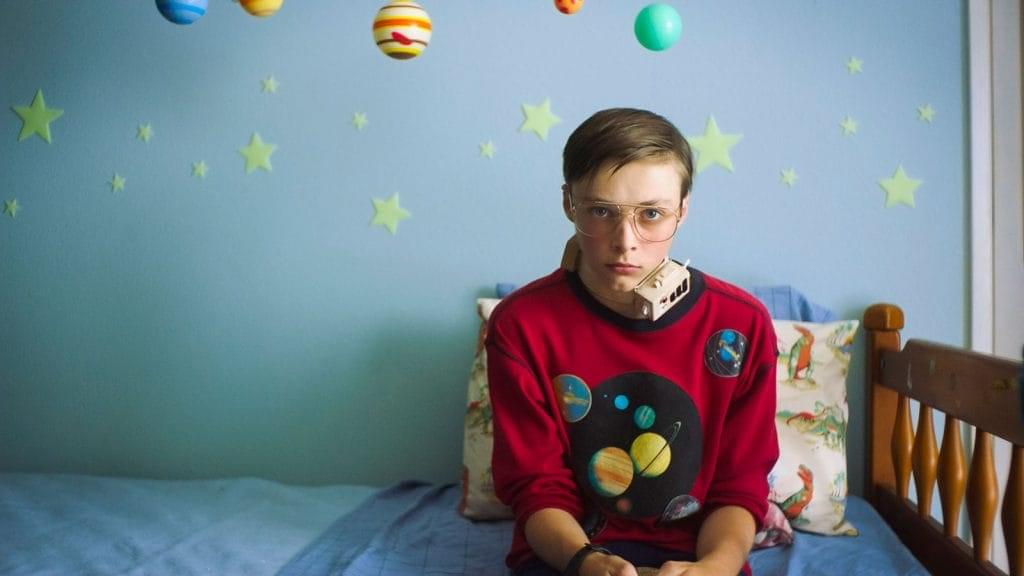
If you’ve seen HBO’s “Project Greenlight” television series, kind of “The Real World” on a movie set, you’d probably think that the film “Stolen Summer” was going to turn out to be a train wreck. The weekly show documented the misadventures of aspiring Chicago filmmaker Pete Jones, winner of a screenplay competition that gave him the opportunity to direct his vision with a $1 million dollar budget. The struggles with everything from budget to casting to production woes are presented, warts-and-all, and the result is a highly entertaining TV show. But what about the movie? From the show, it looks like a disaster in the making with a story that will turn out laughable at best. Strangely, nothing could be further from the truth. Yes, I watched every episode of “Project Greenlight” and I am just as shocked as you are. First-timer Pete Jones has delivered a solidly entertaining and moving family drama. Perhaps that’s what has taken so many by surprise – that the final product is an earnest, sweet movie filled with likable characters. But it’s also a family film with the balls to tackle serious religious issues. “Stolen Summer” will definitely surprise you.
The story centers on Pete O’Malley (Adi Stein), a crimson-haired eight year-old growing up an Irish Catholic in suburban Chicago in the 1970s. He’s on quest to redeem himself in the eyes of God and chooses to try to convert Jews to Christianity. (Stop groaning, just wait.) He sets up a “lemonade-like” stand in front of the local synagogue in search of customers. It’s there that he meets Rabbi Jacobsen (Kevin Pollack). Some find the stand offensive, but the Rabbi finds it cute. He soon meets the Rabbi’s son Danny (Mike Weinberg) whose cancer is in remission. (Now, don’t be a cynic.) Pete now sets upon a quest to convert Danny so that when he dies, he’ll get into heaven. The boy’s friendship quickly throws both families into turmoil resulting in the inevitable tear-jerker ending. (Fine, groan, but see it before you bag on it.) The story is enhanced by solid performances all around by Bonnie Hunt, Aidan Quinn and Kevin Pollack.
Yeah, this description sounds schmaltzy but the performances of the two young boys make it all worth it. They just come off as real kids. In fact, I can’t remember a film that featured two children that young having such an intense discussion. So, before you begin to scream that this sounds like some crappy ABC After School Special, consider how children really react when religious dogma is hammered into their heads. Children are naturally curious about religion and perhaps confused (I’m personally still confused) about why faith seems to require throwing out simple concepts like logic. In fact, I can tell you that I know kids actually have serious conversations about religion like this. Now, how the hell do I know this? Hey, I’ve got two kids right around the same age as the boys in the film and “kid logic” works like that. Children always seem to ask the “why” questions with complete innocence. Why should my Jewish friend not be allowed into heaven? Yeah, why the hell not?! Er, I mean, why not?
It’s actually funny exactly how well this movie turned out in spite of the skewering the production received by way of the weekly “Project Greenlight” show. I had the opportunity to speak to executive producer Pat Peach at Sundance and we discussed this. I told him that having spent time on independent film sets, that I didn’t feel that the making of “Stolen Summer” looked particularly unique at all. All film sets come with their share of daily problems and crises. Peach backed me up and revealed that the show seemed to focus on the 30 minutes a day when everything seemed to go wrong. He said that “Stolen Summer” was actually one of the smoothest shoots he’d ever worked on. In fact, he theorized that the episode in which the catered lunch never arrived was actually staged by the TV producers. And that Chris Moore’s now notorious tirades were simply all for the cameras. All this nonsense just to create some drama, which is the root of all good television. And movies for that matter.
